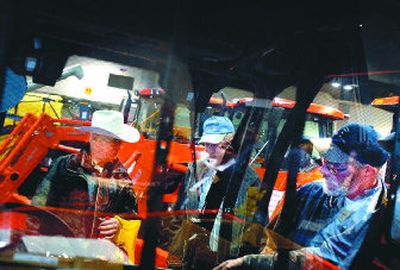Climate of change

Expert forecaster Art Douglas gave several hundred farmers a good-news-bad-news weather report with a twist.
The next two years should be wet and warm enough to deliver a good wheat crop. The problem is that global warming is raising havoc with long-range forecasts.
Douglas, a perennial favorite at the Spokane Ag Expo and the Pacific Northwest Farm Forum, has earned respect for decades of accurate long-range forecasting as head of Creighton University’s environmental and atmospheric science department. He had been a skeptic of global warming for years – much to the delight of those who reject science as environmental politics.
But speaking Tuesday at the Ag Expo, Douglas said that humans share the blame for increasing Earth temperatures by burning fossil fuels. He wasn’t persuaded by Al Gore or Greenpeace – Douglas said he reached his conclusion after several unexplainable failures of his trusted forecast modeling.
“We’ve been burned when we shouldn’t have been.”
Douglas said after his presentation that global warming “is a complex problem and there is no single cause. … But CO2 (carbon dioxide) is partly at fault, and we must address pollution and environmental degradation.”
Now 59 and retiring from Creighton, Douglas has been appointed by President Bush to the U.S. Climate Change Science Program. Farmers and businesses use Douglas’ temperature and precipitation modeling to make planting, investment and inventory decisions.
He is a top-draw speaker at the annual agriculture show, and many in the audience applauded when he said newspaper editorials were too quick to lay the entire climate change problem on people. He has not yet viewed Gore’s documentary “An Inconvenient Truth.”
Yet, talking to reporters after his presentation, Douglas said his belief in human-caused global warming has increased, and he cautioned that he’s primarily critical of the media for oversimplifying the problem.
Douglas isn’t nearly as fervent on the matter as many world scientists. The latest scientific report to the United Nations offered a bleak assessment: Humans are to blame for global warming and thus must take drastic actions to curb emissions of carbon dioxide or saddle future generations with a planet made less hospitable.
The United States is concerned that reversing course by capping carbon dioxide emissions and legislating fuel efficiency standards would wipe out jobs and hurt the economy without requiring similar actions by other nations.
Douglas stopped short of endorsing specific policies, but he urged that action should be taken soon.